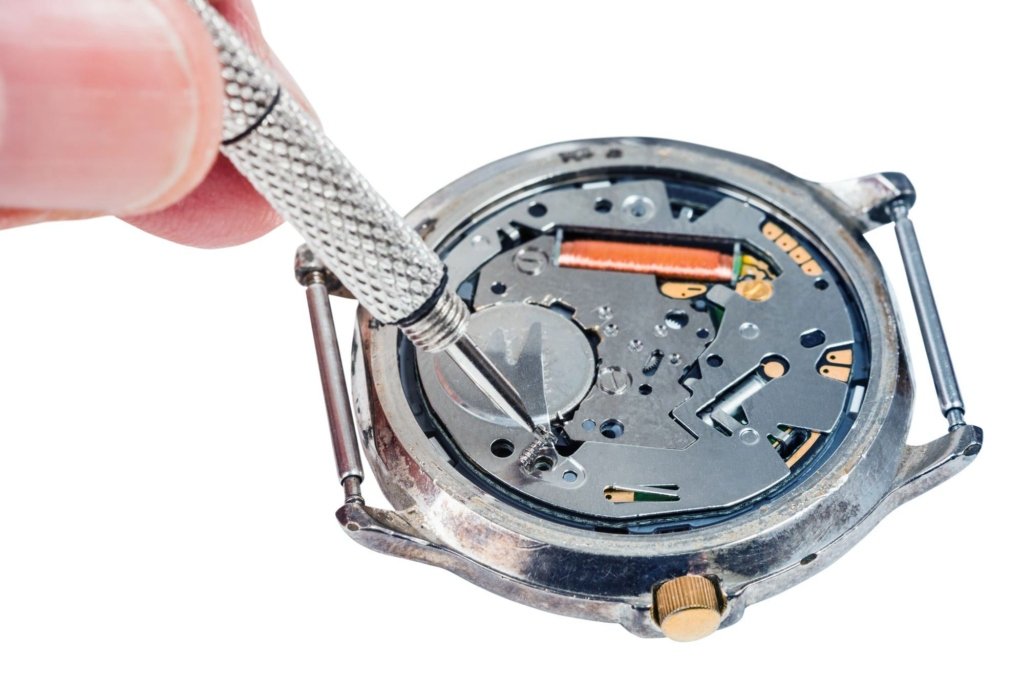“How long do watches battery last?” every time we face this question from our audience. The battery is the life source of a watch, powering every tick. Its lifespan, however, depends on factors such as battery type, watch features, and usage frequency. Common watch batteries include silver oxide, lithium, and solar, each with unique lifespans. Silver oxide batteries are often in quartz watches, while digital watches usually utilize lithium batteries. Solar-powered watches, harnessing sunlight for power, contain solar batteries. Understanding these batteries, their lifespans, and influencing factors can guide watch owners in maintenance and care. This guide offers insights into the intriguing world of watch batteries and their lifespan.
- Understanding the Basics of Watches Batteries
- Lifespan of Different Types of Watches Batteries
- Factors Affecting Watches Battery Life
- How to Maximize Watches Battery Life
- Signs Your Watch Battery Needs Replacement
- How to Safely Replace a Watches Battery?
- Environmental Impact of Watch Batteries
- Frequently Asked Questions
Understanding the Basics of Watches Batteries
Watch batteries are the lifeblood of timepieces. They supply the energy needed to keep your watch ticking accurately. Understanding them gives you the power to make informed decisions about your timepiece.
Three types of watch batteries exist silver oxide, lithium, and solar batteries. Each one has unique characteristics and applications.
Silver oxide batteries are common in quartz watches. They maintain a steady voltage output throughout their life, ensuring your watch keeps precise time. Despite their compact size, they seal a significance, delivering reliable power over two to five years.
Next up, we have lithium batteries.” Digital watches often contain these energy powerhouses.”. They offer higher voltage and an extended lifespan compared to silver oxide batteries. Lithium batteries can keep a watch running for up to 10 years, making them a favourite among digital watch users.
Lastly, we delve into solar batteries. These eco-friendly power sources are found in solar-powered watches. They harness sunlight, converting it into energy to power the watch. Unlike traditional batteries, solar batteries recharge with exposure to light, making them a sustainable choice.
But how do these batteries work? In simple terms, a chemical reaction inside the battery creates an electrical charge. This charge powers the watch’s movement, whether it’s a simple analogue hand movement or a digital display with multiple features.
Understanding watch batteries is crucial for maintaining your timepiece. The right knowledge can lead to better care, longer battery life, and a more enjoyable watch experience.
Lifespan of Different Types of Watches Batteries
The lifespan of a watch battery significantly influences the performance and maintenance of your timepiece. Various battery types come with different lifespans, each fitting distinct watch types and user needs.
Starting with silver oxide batteries, they typically power quartz watches. These batteries offer a reliable lifespan of two to five years. A steady voltage output characterizes their life, providing consistent timekeeping until they exhaust.
On the other hand, lithium batteries, often found in digital watches, boast a longer lifespan. They can survive up to 10 years, relying on the watch’s energy consumption. Their higher voltage output and longer lifespan make them a go-to choice for watches with additional features.

Lastly, let’s consider solar batteries. These batteries, designed for solar-powered watches, have an impressive lifespan. They can prevail for up to 15 years with valid maintenance. Unlike other battery types, solar batteries recharge through exposure to light. As long as the watch gets adequate light, the battery maintains its charge, extending its life.
Factors Affecting Watches Battery Life
The life of your watch battery isn’t just about the type of battery you use. Several factors influence battery life. The type of watch and the environmental conditions expose it.
First, the type of watch plays a significant role. Digital watches, with their constant display and multiple functions, can drain batteries faster than analogue watches. Thus, you might replace batteries more frequently with a digital timepiece.
Next, the frequency of use is another determining factor. A frequently used watch, particularly one with several features, requires more power, reducing battery life.
Additional features also impact battery life. If your watch has alarms, backlight, heart rate monitors, or GPS, it consumes more energy. Every time these functions are in use, it demands more from the battery, leading to faster depletion.
The battery’s quality and brand also play a vital role. High-quality batteries from reputable brands usually offer a longer lifespan. They’re designed with superior technology and materials, promising reliable performance.
Lastly, environmental conditions can affect battery life. Unnecessary hot and cold temperatures can cause batteries to drain faster. Therefore, storing your watch in a temperate environment can help maintain battery life.
In essence, to maximize your watch battery life, consider these factors. Choose your watch and its features wisely. Opt for high-quality batteries and ensure proper storage. These steps will help prolong your battery life, ensuring your timepiece remains reliable for longer.
How to Maximize Watches Battery Life
Maximizing the life of your watch battery not only conserves your time and money but also ensures that your watch remains functional and reliable. Here are some key strategies to help extend your watch’s battery life.
Proper handling and storage is the first crucial step. Avoid exposing your watch to extreme temperatures. Store it in a relaxed, dry place when not in use. This simple step can significantly extend your battery life.
Regular servicing is another essential factor. Just like a car, watches need routine maintenance to ensure they run efficiently. A well-maintained watch mechanism requires less power, conserving battery life.
Using watch features wisely also plays a role in battery conservation. Features like alarms, backlights, and health monitors consume additional power. Using these sparingly can help save your battery life.
Finally, choosing the right battery for your watch is paramount. Each watch requires a specific type of battery to function optimally. High-quality batteries from reputable brands tend to last longer. They’re designed to deliver consistent performance over an extended period.
Signs Your Watch Battery Needs Replacement
Knowing when your watch battery needs replacement is key to maintaining the functionality of your timepiece. Certain signs indicate it’s time for a change.
Firstly, the slowing of the watch hands is often the initial sign. If you notice your watch losing time or the second’s hand ticking in larger intervals, it’s a clear signal that the battery is running low.
Secondly, an irregular time display can also hint at a weakening battery. For example, the display might flicker in digital watches, or digits might fade. This irregularity is a warning that the battery lacks the power to support the watch functions properly.
Lastly, the most obvious sign is the complete stoppage of the watch. The watch ceases to function when the battery has finally exhausted its charge.
How to Safely Replace a Watches Battery?
Replacing a watch battery may seem intimidating, but commendations, it’s a ma with the right tools and guidance manageable task.
You’ll need a case back opener, precision screwdrivers, and tweezers. Always handle the watch with care to avoid damaging delicate parts. Ensure a clean, well-lit workspace.
Here’s a simplified guide: First, use the case back opener to remove the back of the watch. Next, identify the battery and carefully remove it with tweezers. Then, replace it with a new one, ensuring the correct orientation. Finally, replace the case back securely.

However, for complex watches, professional help is recommended. Certain timepieces, especially luxury ones, require expert knowledge and tools. A professional can handle the replacement process efficiently, avoiding any potential damage.
While you can replace a watch battery yourself, always consider the complexity of your watch. When in doubt, seek professional assistance to ensure the longevity and functionality of your timepiece.
Environmental Impact of Watch Batteries
Watch batteries, while small, can have a significant environmental impact. Improper disposal can lead to harmful chemicals leaking into the soil and waterways. These toxic elements include mercury, cadmium, and lead, which pose serious environmental hazards.
Therefore, recycling is crucial. Many cities have recycling programs that accept used watch batteries. Alternatively, certain retailers and watch repair shops offer recycling services. By recycling, you’re ensuring that these harmful chemicals are safely managed and reused.
The way we handle used watch batteries has a notable environmental footprint. Therefore, it’s our responsibility to dispose of them correctly, promoting recycling and reducing harmful waste.

In conclusion, understanding the watch battery lifespan is essential. Proper maintenance and responsible usage can prolong it. Remember, a good watch needs a good battery.
We created this content using information from reliable sources. It aims to comprehensively understand watch battery lifespans and proper maintenance practices. Frequently Asked Questions
Frequently Asked Questions
Q: What’s the typical lifespan of a silver oxide watch battery?
A: A silver oxide watch battery lasts between two to five years, offering a steady voltage until it exhausts.
Q: How long can a lithium watch battery last?
A: A lithium battery, typically used in digital watches, can survive up to 10 years, depending on the watch’s energy consumption.
Q: How frequently should I service my watch to extend its battery life?
A: We recommend regular servicing. The frequency depends on the watch type and usage. It’s best to consult with a professional.
Q: How can I maximize my watch’s battery life?
A: Store your watch properly in a cool, dry place when not in use. Use additional features sparingly and ensure regular servicing. Also, choose the right battery for your watch.
Q: What are the signs that my watch battery needs replacement?
A: Signs include slowing of the watch hands, irregular time display, and eventually, complete stoppage of the watch.
Q: Can I replace my watch battery myself?
A: Yes, with the right tools, such as a case back opener and precision screwdrivers, you can. However, for complex watches, professional help is recommended.
Q: Why is it necessary to dispose of watch batteries properly?
A: Watch batteries contain chemicals that can harm the environment if disposed of improperly. Recycling helps in the proper disposal of these batteries, reducing environmental impact.
Q: Does the type of watch affect battery life?
A: Yes, the type of watch significantly impacts battery life. Digital watches drain batteries faster than analogue ones due to their constant display.
Q: How does temperature affect my watch’s battery life?
A: Environmental conditions like extreme temperatures can impact the battery life of your watch, potentially causing it to drain faster.
Q: Is a solar watch battery a good option?
A: Yes, solar batteries can last up to 15 years with proper maintenance. They require regular exposure to light for recharging, making them a sustainable option.



